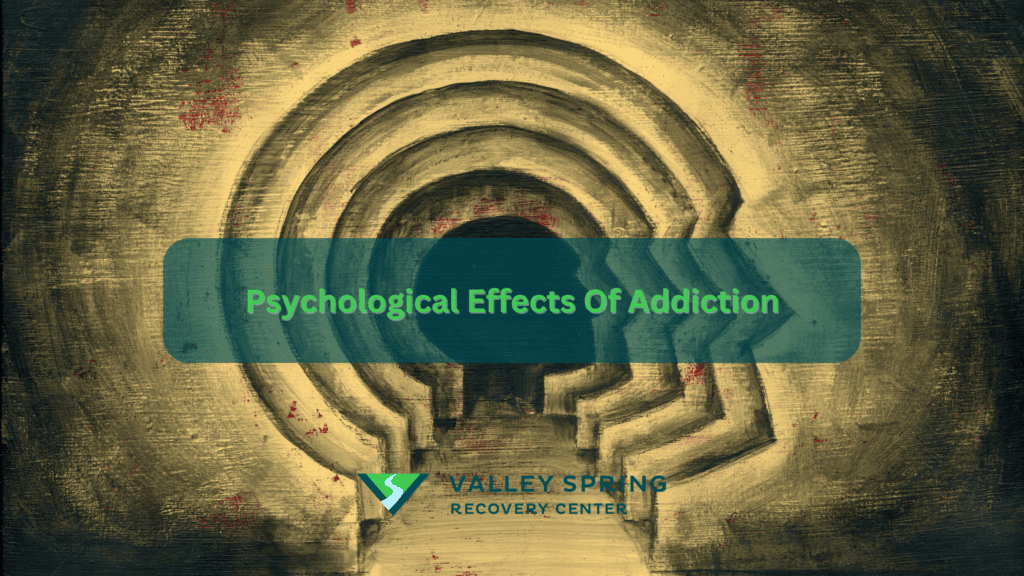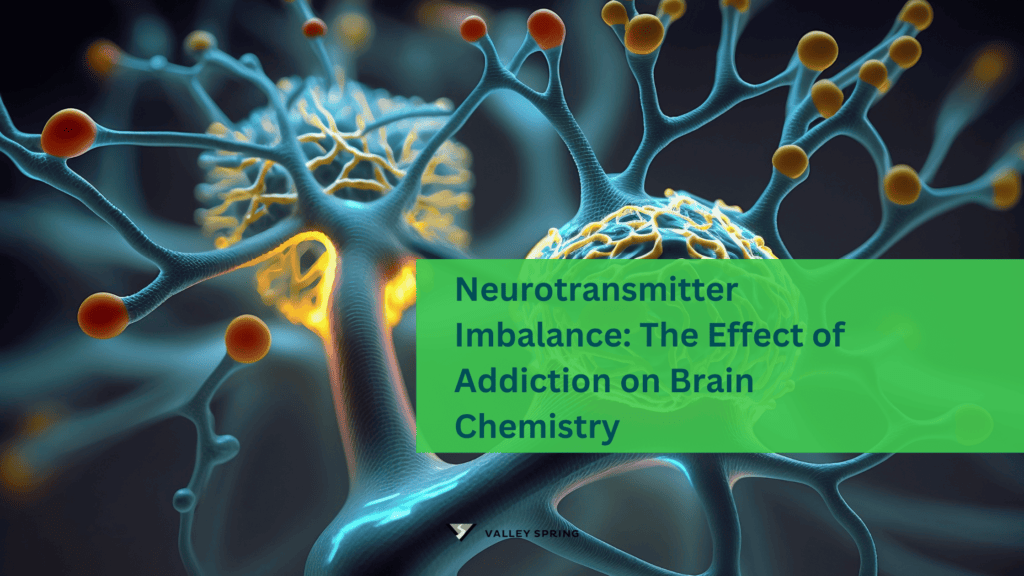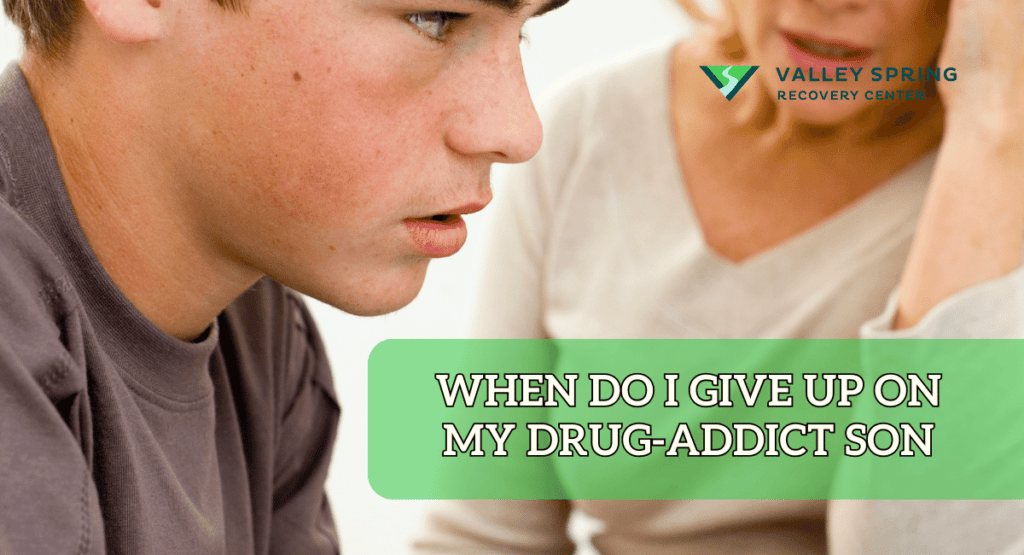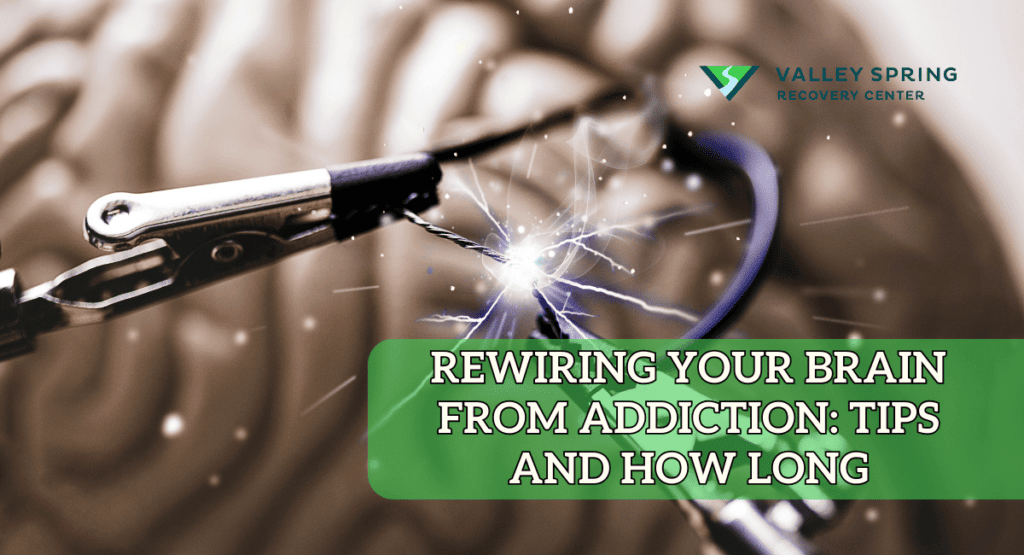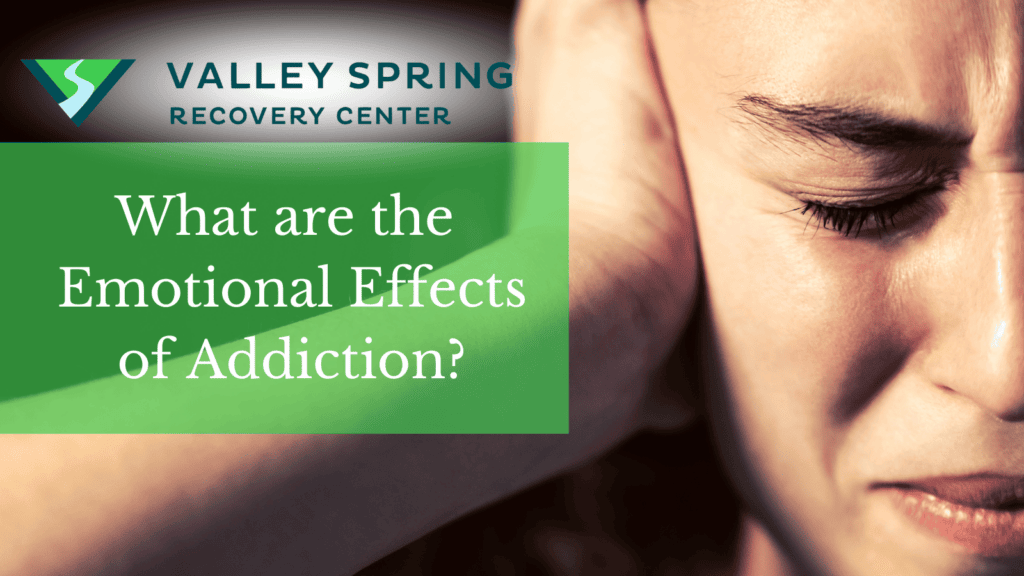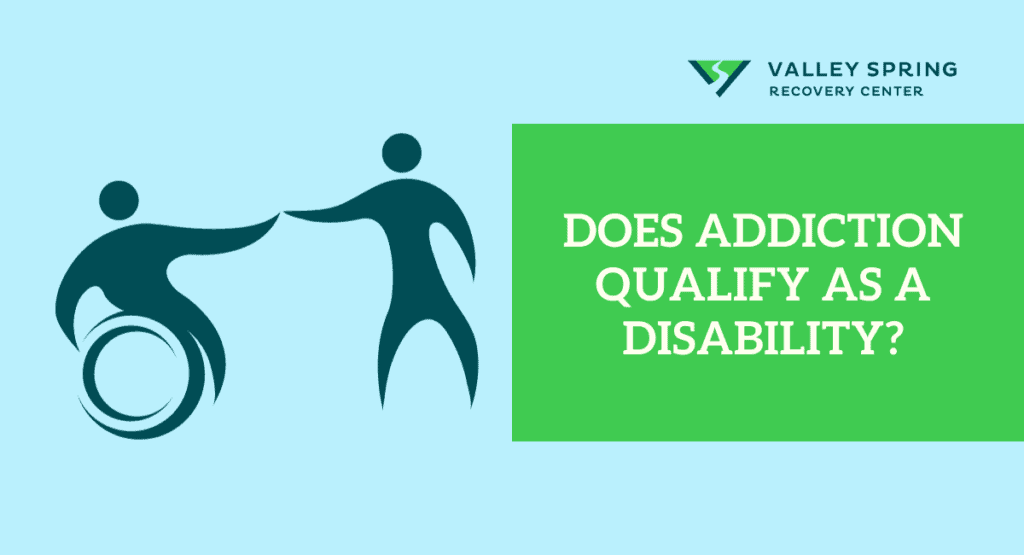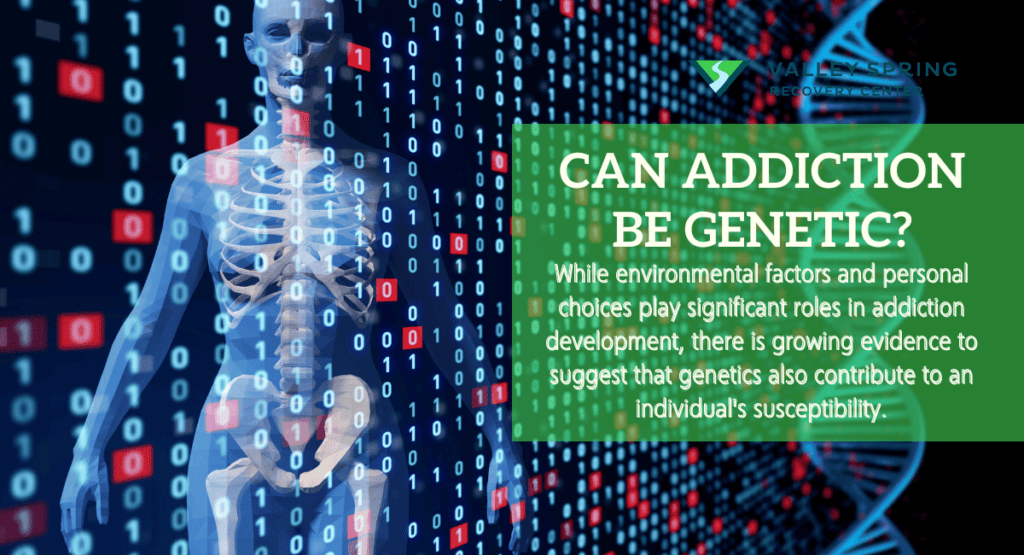The psychological effects of addiction extend far beyond the physical dependencies, deeply impacting mental and emotional well-being. Substance abuse disorders can significantly alter brain chemistry and neural pathways, leading to a wide range of mental health issues, including anxiety, depression, and mood disorders. According to the National Institute on Drug Abuse, nearly half of those who experience a substance use disorder during their lifetime will also suffer from a co-occurring mental health condition, illustrating the profound connection between addiction and psychological health. This article delves into the intricate ways in which addiction affects the mind and emotions, shedding light on the importance of addressing mental health as a crucial component of addiction recovery. Through an exploration of the latest research and expert insights, readers will gain a comprehensive understanding of the mental and emotional toll of addiction, highlighting the necessity for integrated treatment approaches that encompass both psychological support and substance abuse rehabilitation.
What are the mental effects of drug and alcohol addiction?
The effects of drug addiction don’t just harm the body; it also has a big impact on mental and emotional health. Addiction is linked to mental health issues, affects thinking and memory, and changes how people feel and handle emotions. Understanding these effects is key to seeing the full picture of addiction’s impact.
Addiction can both stem from and contribute to conditions such as depression, anxiety, and bipolar disorder. The use of substances as a form of self-medication for pre-existing mental health issues can lead to addiction, while prolonged substance abuse can exacerbate or even trigger new mental health conditions. This dual battle with addiction and mental health disorders creates a cycle that can be challenging to break, necessitating a holistic approach to treatment that addresses both aspects concurrently.
Chronic substance abuse can lead to significant cognitive impairments, affecting memory, attention, decision-making, and problem-solving skills. The brain’s structure and function are altered by prolonged exposure to addictive substances, which can result in diminished cognitive capabilities. These impairments can affect daily functioning and quality of life, making it challenging to perform tasks, hold down a job, or maintain relationships. Recovery and rehabilitation can improve these cognitive functions over time, but some effects may be long-lasting, especially with prolonged and heavy substance use.
Addiction deeply affects emotional well-being, leading to a range of negative emotional states including feelings of guilt, shame, and low self-esteem are common among those struggling with substance abuse. Additionally, the isolating nature of addiction can lead to loneliness and a sense of disconnection from others. The highs and lows associated with substance use and withdrawal can also cause mood swings and emotional instability. Understanding and addressing these emotional aspects is a crucial part of the recovery process, as emotional health is deeply interconnected with overcoming addiction.
What is the connection between substance use disorders (SUDs) and mental health conditions?
The relationship between substance use disorders (SUDs) and mental health conditions is both profound and complex, with numerous studies underscoring the high incidence of comorbidity between these issues. Research indicates a significant overlap between SUDs and various mental health disorders, highlighting the need for integrated treatment approaches.
About half of those who experience a mental illness during their lives will also experience a substance use disorder and vice versa, according to a comprehensive analysis from the National Institutes on Drug Abuse (2020). This bidirectional relationship underscores the intertwined nature of these conditions, necessitating a holistic approach to treatment.
Specific Mental Health Disorders and SUD Comorbidity
High rates of comorbidity exist between SUDs and a range of mental disorders, including anxiety disorders (such as generalized anxiety disorder, panic disorder, and post-traumatic stress disorder), depression, bipolar disorder, attention-deficit/hyperactivity disorder (ADHD), and serious mental illnesses like schizophrenia and bipolar disorder, according to a 2012 study by Ross S, Peselow E., titled “Co-occurring psychotic and addictive disorders: neurobiology and diagnosis.” This overlap is notably pronounced among individuals with serious mental illness (SMI), where approximately 1 in 4 also have an SUD.
Youth and Comorbidity
The connection between adolescent substance use and mental health is particularly concerning, with over 60 percent of adolescents in community-based substance use disorder treatment programs also meeting diagnostic criteria for another mental illness, as highlighted by Hser YI, Grella CE, Hubbard RL, et al., in their 2001 study, “An evaluation of drug treatments for adolescents in 4 US cities.”
Anxiety Disorders and SUD
The relationship between anxiety disorders and substance use is significant, with Magidson JF, Liu S-M, Lejuez CW, Blanco C. (2012) finding that individuals with generalized anxiety disorder have a heightened risk of developing substance use disorders, underscoring the need for targeted interventions.
What comes first, mental health conditions or addiction?
The relationship between mental health conditions and addiction is complex and bidirectional. For some individuals, mental health issues can lead to substance abuse as a form of self-medication to alleviate symptoms of depression, anxiety, or other disorders. This can develop into an addiction over time. Conversely, addiction can exacerbate or trigger the development of mental health conditions due to its detrimental effects on the brain’s chemistry and function. Substance abuse can alter the balance of neurotransmitters, leading to the emergence or worsening of mental health symptoms. This intertwining of disorders is known as comorbidity, and it highlights the importance of addressing both mental health and substance use disorders simultaneously in treatment to ensure the most effective recovery process.
Does Addiction Lead to long-term mental health issues?
Persistent substance abuse can lead to enduring cognitive impairments, including memory loss, and decreased attention span along with learning, memory, and reasoning according to Gould, Thomas J. 2010. Additionally, the psychological toll of addiction can result in chronic mental health conditions like depression, anxiety disorders, and in some cases, psychosis. These mental health issues may persist even after the cessation of substance use, requiring long-term or even lifelong management. Understanding these risks highlights the importance of early intervention and comprehensive treatment in addressing addiction.
How Are The Psychological Effects Of Addiction Addressed During Treatment?
Recognizing the prevalence and impact of comorbid conditions in the context of addiction recovery is important to providing an effective treatment approach that addresses dual diagnosis issues at the same time. Integrating mental health treatment with substance use disorder interventions is crucial for addressing the full spectrum of an individual’s needs, thereby enhancing the efficacy of recovery efforts and supporting long-term wellness.
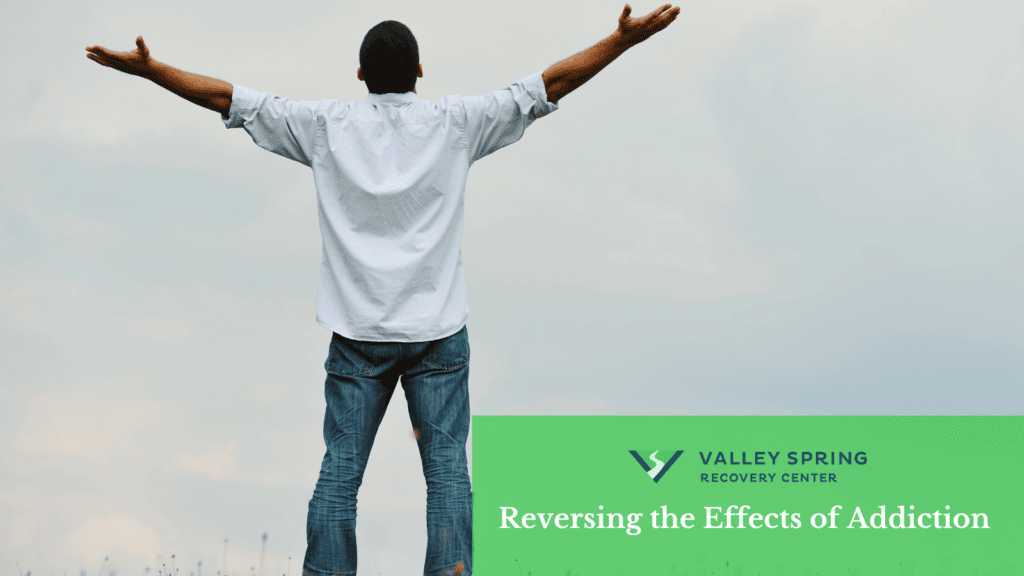
How Does Mental Rehabilitation and Emotional Healing occur?
Mental and emotional recovery is a pivotal aspect of overcoming addiction. This process typically involves therapy, counseling, and support groups, which help individuals address the underlying psychological factors of their addiction. Cognitive-behavioral therapy, for example, is often used to change harmful thought patterns and coping mechanisms. Emotional healing also includes building resilience, developing healthy emotional regulation, and repairing self-esteem damaged by the cycle of addiction. Recovery is not just about abstaining from substances; it’s about rebuilding a healthy mental and emotional life, a journey that can be as challenging as it is rewarding.
How does addiction alter emotional regulation?
Addiction can significantly impair an individual’s ability to regulate emotions. Substance abuse disrupts and changes the brain’s reward system and alters the functioning of neurotransmitters responsible for mood regulation, such as dopamine and serotonin. This can lead to heightened sensitivity to emotional stress, increased irritability, and difficulty experiencing pleasure from previously enjoyable activities.
Can addiction lead to the development of new mental health disorders?
Yes, addiction can precipitate the onset of new mental health disorders. The chemical imbalances caused by regular substance abuse can contribute to the development of conditions such as anxiety disorders, depression, bipolar disorder, and psychosis. This phenomenon is known as substance-induced mental disorders.
Is there a link between addiction and emotional trauma?
A strong link exists between addiction and trauma. Many individuals with substance use disorders have a history of traumatic experiences, such as physical or emotional abuse, neglect, or witnessing violence. Substance abuse is often used as a coping mechanism to numb emotional pain and symptoms of post-traumatic stress disorder (PTSD), creating a cycle that exacerbates both the trauma and the addiction. Addiction can also lead to traumatic events which can have negative long-term emotional effects.
How does addiction affect cognitive functions?
Addiction can lead to cognitive impairments, affecting memory, attention, decision-making, and problem-solving skills. Substances like alcohol, opioids, and stimulants can damage brain cells and alter brain structure, leading to difficulties in learning new information, recalling memories, and making sound judgments.
Can addiction change personality?
Substance abuse can lead to noticeable changes in personality. Individuals may exhibit increased impulsivity, aggression, or apathy as a result of their addiction. These changes are often related to the drug’s effects on brain chemistry and the individual’s preoccupation with obtaining and using the substance.
What is the impact of addiction on an individual’s social relationships?
Addiction can severely strain social relationships. Trust issues, communication breakdowns, and emotional detachment can arise as the addicted individual becomes more focused on their substance use than on maintaining healthy relationships. This can lead to isolation, conflict with loved ones, and the deterioration of social support networks.
Are the psychological effects of addiction reversible?
Many of the psychological effects of addiction can be reversed or improved with proper treatment and recovery efforts. Cognitive-behavioral therapy, medication-assisted treatment, and support groups can help address the underlying mental health issues and promote healthier coping mechanisms. However, the degree of reversibility may depend on the duration and severity of the addiction, as well as the presence of co-occurring mental health disorders.
How does addiction impact an individual’s sense of self?
Addiction can erode an individual’s sense of self-worth and identity. The cycle of craving, substance use, and regret can lead to feelings of shame, guilt, and a perceived loss of control over one’s life. Rebuilding self-esteem and rediscovering personal identity are crucial components of the recovery process.
Sources
-
National Institute on Drug Abuse (NIDA): NIDA provides extensive research and data on the interconnection between mental health disorders and substance use disorders, emphasizing the need for treating both conditions simultaneously. One of their highlighted resources is the report on “Comorbidity: Addiction and Other Mental Illnesses,” which details the prevalence and nature of comorbid substance use disorders and mental illness.
Resource: National Institute on Drug Abuse. (2020). “Comorbidity: Addiction and Other Mental Illnesses.”
-
The Lancet Psychiatry: A study published in The Lancet Psychiatry, “Global statistics on addictive behaviors: 2014 status report,” provides comprehensive data on the prevalence of substance use disorders and their impact on mental health worldwide, offering a global perspective on the issue.
Study: Gowing, L. R., Ali, R. L., Allsop, S., Marsden, J., Turf, E. E., West, R., & Witton, J. (2015). “Global statistics on addictive behaviors: 2014 status report.” The Lancet Psychiatry, 2(6), 452-466. DOI: 10.1016/S2215-0366(15)00217-X
-
American Journal of Psychiatry: The article “The Role of Unaddressed Trauma in the Substance Use and Mental Health Problems of Men and Women in Prison” in the American Journal of Psychiatry discusses the link between unaddressed trauma, substance use disorders, and mental health problems, highlighting the importance of trauma-informed care in treatment.
Article: Messina, N., & Grella, C. (2006). “The Role of Unaddressed Trauma in the Substance Use and Mental Health Problems of Men and Women in Prison.” American Journal of Psychiatry, 163(8), 1397-1403. DOI: 10.1176/ajp.2006.163.8.1397
-
Journal of Substance Abuse Treatment: Research published in the Journal of Substance Abuse Treatment, “Integrated Treatment of Substance Use and Psychiatric Disorders,” provides insight into effective strategies for treating individuals with co-occurring substance use and psychiatric disorders, advocating for an integrated approach to treatment.
Study: Drake, R. E., Mueser, K. T., Brunette, M. F., & McHugo, G. J. (2004). “Integrated Treatment of Substance Use and Psychiatric Disorders.” Journal of Substance Abuse Treatment, 27(1), 1-12. DOI: 10.1016/j.jsat.2003.12.004
Ben Fisher
All author postsShare This Post

